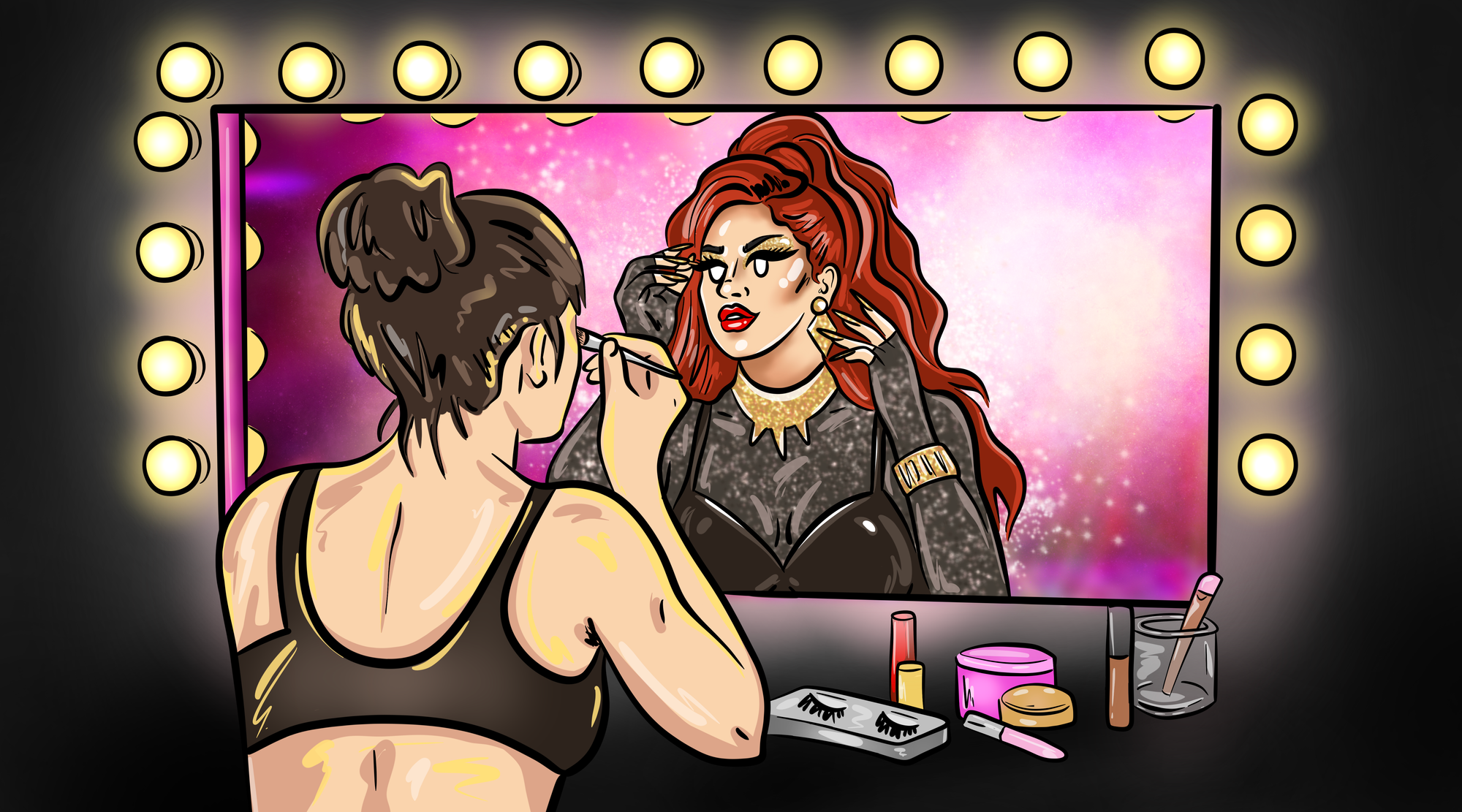The majority of sex workers are women. Given this reality, many find it reasonable to speak about the sale of sexual and intimate services as if it’s a type of work exclusive to women. We make broad generalizations all the time in daily speech, so what’s the harm in assuming the workers are women when talking about a female-dominated profession?
When we generalize about a topic, we rely on the listener to understand that there are exceptions. Unfortunately most people are not very educated about sex work and are unlikely to have a working knowledge of the number of queer men and non-binary people involved in it, so generalizations about gender are taken as fact. Cis male sex workers become equivalent to a freakshow act to gawk at and transmasculine ones might as well be unicorns.
Using she/her pronouns by default to refer to a hypothetical sex worker can’t help but plant the idea in the mind of a non-sex worker who is listening that they should expect sex workers they come across to be women. Men and non-binary sex workers may feel as though we aren’t worthy of consideration at all. On an interpersonal level, this can result in a greater level of disbelief or confusion when men and non-binary people come out to their friends as sex workers. When it comes to support services, that same language use may make anyone who is not a woman feel as though they are not included and prevent them seeking or accessing help.
We make broad generalizations all the time in daily speech, so what’s the harm in assuming the workers are women when talking about a female-dominated profession?
In addition to this, hypothetical female sex workers are usually assumed to be cis until it comes to RuPaul interviewing trans sex workers on the street, exploiting them for views, or other deeply transphobic depictions on TV. To no-one’s surprise, those who use gender-exclusive language tend not to be considerate of even the trans people who fit into the demographic they’re talking about. Women involved in sex work are more likely to be trans than the civilian population, yet conversations about them tend to include presumptions of cisness through cis hegemony and assumption of shared experiences like unwanted pregnancy or working whilst on their period.
Neutral language when discussing sex work as a whole also does not prevent the acknowledgement of the misogyny which motivates whorephobia and the disproportionate impact of anti sex worker stigma on women, nor does it preclude the statement that most sex workers are women. The disgust that people have towards sex workers and the associated stereotypes are primarily a result of the draconian idea that a woman’s sexuality should belong to her husband or be guarded by her father; this can be said without the implication that everyone who is a target of this disgust or stereotyping is a woman. In fact, speaking as if all sex workers are women allows for men and non-binary people to be raised as a rhetorical gotcha moment which draws attention away from the problem.
To understand the issue of gendered language in sex work whilst minimizing whorephobic bias, we can think about a different industry where the vast majority of the workers are women: early years education and child care. This comparison has the added benefit of involving an industry that a lot of sex workers have experience in, either prior to engaging in sex work or since doing so, as well as relating to a type of labour which women are frequently expected to do without payment in their personal lives.
In the UK, only 2% of early years educators are men. Worldwide the statistics are similar, with a few percentage points of fluctuation. If you hear about someone who cares for children as their job, you can reasonably assume they’re a woman and most of the time you’ll be right! Despite this, efforts are made to use neutral language – not for the inclusion of trans people or as an acknowledgement of men as a group who might be marginalized in the profession, but as a manifestation of a desire for gender equality in the workforce.
To no-one’s surprise, those who use gender-exclusive language tend not to be considerate of even the trans people who fit into the demographic they’re talking about.
By assuming that people who work in childcare or early years education are all women, the idea that they must be women is bolstered. Men are therefore less likely to consider these careers as an option, whilst people of all genders have sexist ideas reinforced about women being inherently more nurturing. As for trans people, the strict norms around gender are likely to make us hesitant to test the waters on whether we will be discriminated against and thus not to seek employment in the sector.
If these reasons are enough to avoid generalizing about gender in childcare settings, it should be abundantly clear that we owe at least as much effort towards using gender-neutral language to refer to sex workers. Sex work appears to involve a higher percentage of men compared to care work in the UK, as well as a significant proportion of trans people of varying genders. Due to the stigma and targeted violence that sex workers deal with, we also tend to be in more extreme need of support services which will have to account for our genders or transness when offering us help. Why would sex work deserve less consideration than jobs without those added risks?
There is not a limited amount of oxygen for filling our lungs to speak on sex work. We can have lengthy conversations about misogyny whilst speaking exclusively about the women who sell sex one day, and make a post or write an article giving advice to men who work as strippers the next. If you have a vested interest in one subset of sex workers then there’s no shame in only talking about that group, either. We just need to be sure that we don’t claim the group of sex workers we’re talking about are all there is, whether we’re discussing women or young people or homeless people or immigrants or any other group that are over-represented within sex work.
In much the same way that phrases like “birth parent” or “person with a uterus” don’t stop us from discussing the way misogyny pervades the public discourse on childbirth and abortion, nor does the term “sex worker” do harm for its gender neutrality. Inclusivity is not the enemy of progress, it’s the method by which we achieve it.
Are you a sex worker with a story, opinion, news, or tips to share? We'd love to hear from you!
We started the tryst.link sex worker blog to help amplify those who aren't handed the mic and bring attention to the issues ya'll care about the most. Got a tale to tell? 👇☂️✨





